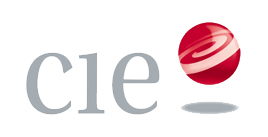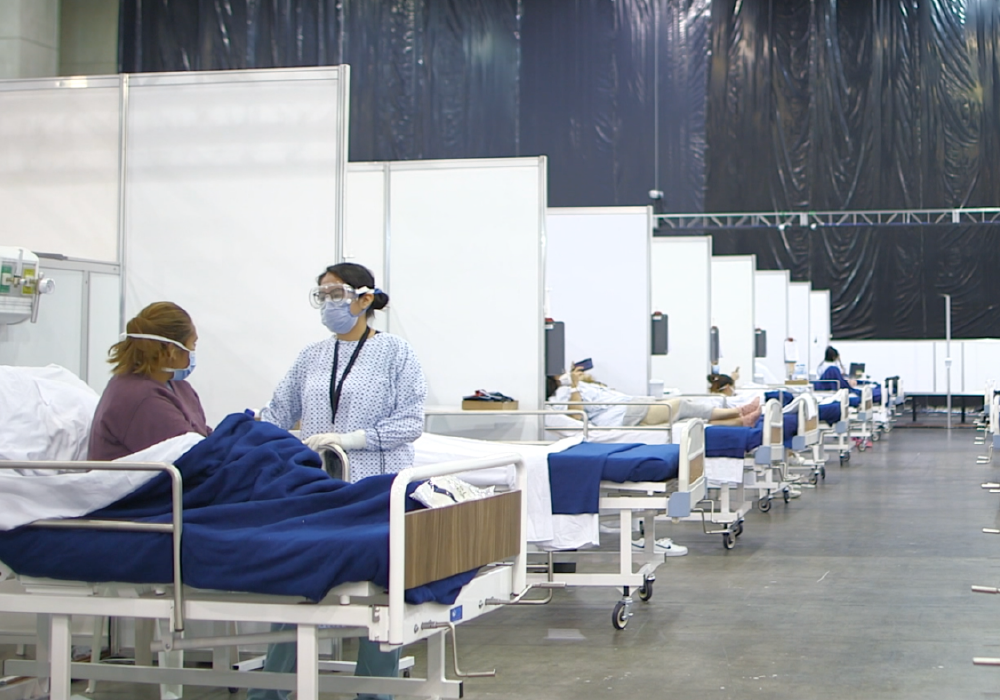The Temporary COVID-19 Unit treated more than 9 thousand patients
The Carlos Slim Foundation , Fundación TELMEX Telcel and Fundación Inbursa contributed more than 1,104 million pesos, of the more than 1,580 million pesos allocated for the reconversion, equipment and operation of the Temporary COVID-19 Unit .
In collaboration with the Mexico City government and the support of the companies and foundations that made up the "Sumamos por México" initiative promoted by the Interamerican Entertainment Corporation (CIE), a unique model for emergency hospital care became a reality.
The conversion of the Citibanamex Center that hosted the COVID-19 Temporary Unit, with the assistance of the Faculty of Medicine of the National Autonomous University of Mexico (UNAM) and the Salvador Zubirán National Institute of Medical Sciences and Nutrition, freed up nearly 112,000 bed days in Mexico City's hospital network.
The medical equipment and furniture used in the Temporary Unit will be donated to 18 hospitals of the Mexico City Government.
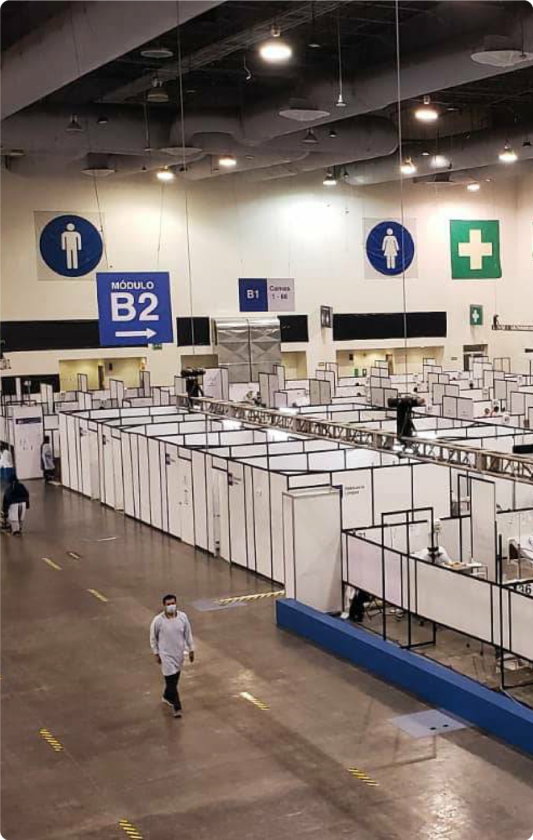
The Temporary COVID-19 Unit at the Citibanamex Center, thanks to the support of the Carlos Slim, TELMEX Telcel and Inbursa Foundations, was consolidated as a reference model of early hospital care, with the heroic work of more than 3,000 professionals who attended 9,088 hospitalized patients and diagnosed in a timely manner 13,542 people in eight evaluation centers set up in different locations in the country's capital.
This unprecedented effort managed to free up 112,555 bed-days in Mexico City's hospital network during the 13 months in which this hospital infrastructure has been in operation.
The free, inclusive and high-quality medical attention provided in the Temporary COVID-19 Unit in the Citibanamex Center is the result of the Carlos Slim Foundation impulse in alliance with the Government of Mexico Cityas well as the support of "Sumamos por México" formed by companies and foundations under the initiative of the CIE.
Fundación Carlos Slim, Fundación TELMEX, Telcel and Inbursa Foundation contributed 1,104 million 902,501 pesos, of the 1,580 million 590,574 pesos allocated for the reconversion, equipment and operation of the Temporary Unit, in order to contribute decisively to the recovery of health in the most challenging moments of the pandemic.
ICD, Walmart Mexico and Central America, Bimbo, Barcel, Fundación Sertull, Fundación Alfredo Harp Helú, Citibanamex, Fundación Coca-Cola, Coca-Cola FEMSA, Coppel, HSBC, CODERE, Grupo Infra and Takeda, were also important donors to this initiative. In addition to the financial resources, the technical and medical criteria of excellence provided by the Secretary of Health of Mexico City, and National Institute of Medical Sciences and Nutrition Salvador and National Autonomous University of Mexico.
Once the operation of the Temporary Unit is completed, 9,670 pieces of medical equipment and furniture, , including ventilators, vital signs monitors, electrocardiographs, lung ultrasound and hospital beds, among others, will be donated to 18 hospitals of the Mexico City Government.
Likewise, once the City Government observes the sustained reduction of infections, hospital occupancy and unfortunate deaths due to COVID-19, it was decreed the conclusion of operations of the Unit on June 15.
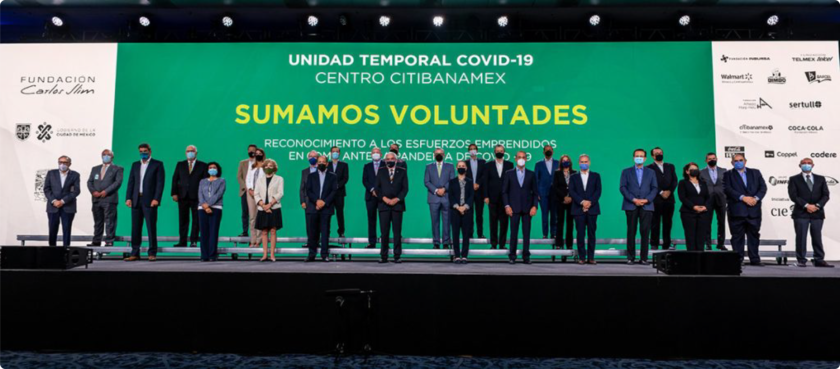
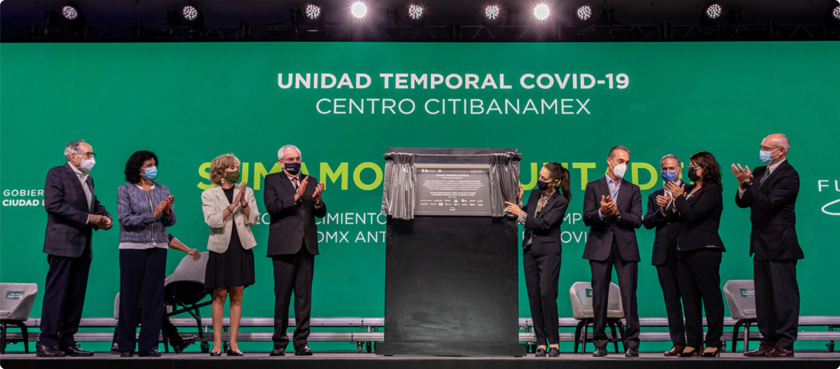
Results of the COVID-19 Temporary Unit in the 14 months of operation:
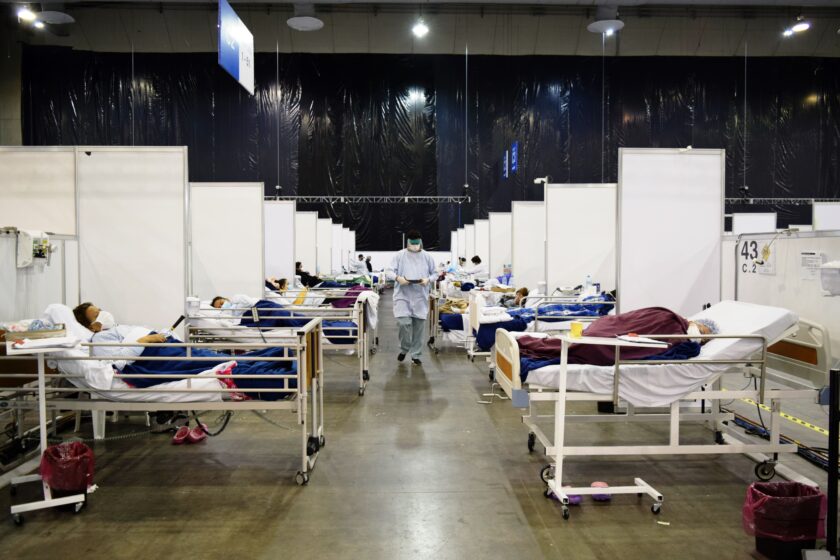
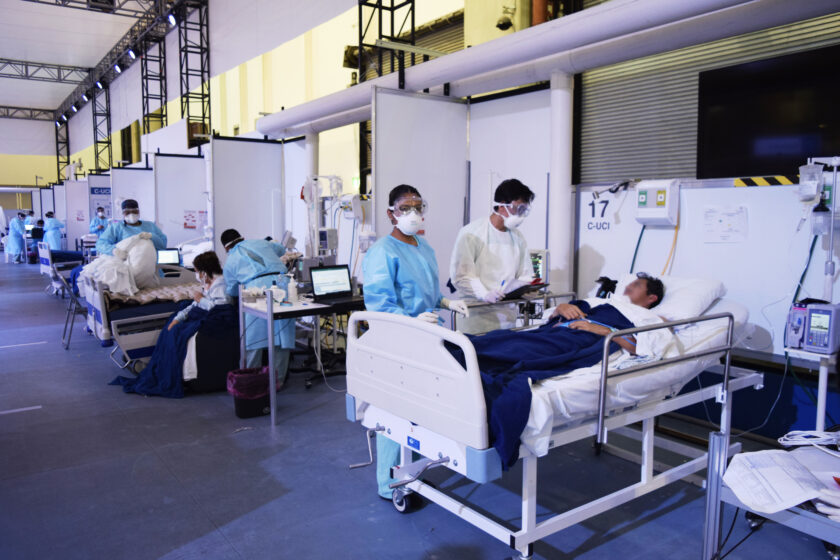
- 9,088 inpatients treated
- 13,542 people diagnosed in 8 assessment centers (triages).
- 3,481 professionals have worked at the COVID-19 Temporary Unit during this time.
- 112,555 days/bed released from the Mexico City hospital network
- Percentage of patients recovered 93.4%.
- Case fatality rate of 3.7%, one of the lowest recorded in the country.
(The differential in percentages was transferred to health sector hospitals)
- 428,384 laboratory tests and x-rays performed at the Unit
- 52,988 follow-up calls to patients
- 9,698 trainings to health professionals
- 1,224,816 food and beverage rations served to staff and patients
- 1,793 patients with high-flow nasal prongs
- 803 patients admitted to intensive care, which shows the expansion of capacities, given that initially only mild and intermediate patients were to be attended.
- Application of the Remdesivir program to 1,329 patients in early stages, of whom 68% increased their probability of improvement and 57% presented a lower risk of disease progression.
Infrastructure and technology
Dimensions: 35,000 square meters of floor space
The Unit is equipped with technology and supplies that guarantee quality and timely care with safety and protection standards for patients and health personnel.
- Conversion of Room "D" into an Intensive Care Unit, with an increase of 22 beds, reaching a total of 54.
- 16-slice tomograph that will help to improve diagnostic accuracy.
- Equipment of monitors and ventilators for post-intensive care.
- 35 thousand gallons of oxygen available.
- 120 medical rest beds and showers.



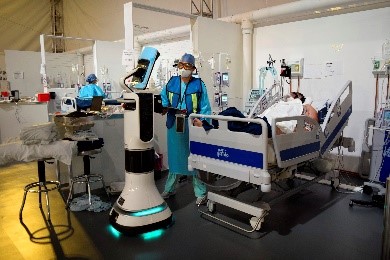
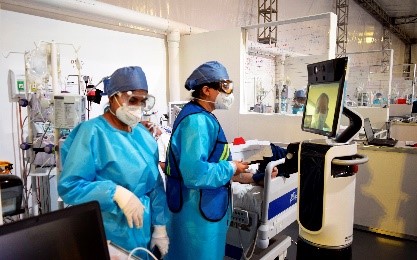
One of the latest technological innovations that has been incorporated is that of robots that fulfill three basic functions:
- They allow surveillance to be carried out on the totality of intensive care patients, remotely checking their parameters and vital signs, issuing alert signals.
- It also allows for concurrent consultation between physicians in and out of therapy. Using videoconferencing technology, different specialists can check a patient without being physically in front of him. The robot has the autonomy to address the patient, without the need for someone to be operating on the patient.
- It has the capacity to review radiographic images on the screen, providing recommendations while one or more specialists review the images.
Protection
The unit has high protection systems for the personnel and patients:
- Personal Protective Equipment
- High efficiency respirators N95
- Protocolos y equipo para evitar diseminación de aerosoles
- Laminar flow air conditioning
- Ultraviolet light lamps for hygienization
- Clinical Nutrition Services
The Temporary Unit operates under the COVID 360 Platform with the following elements:
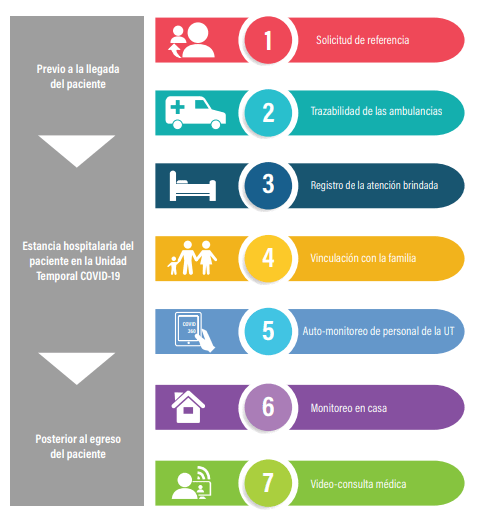
Hospital Referral
An early care and hospitalization strategy has been implemented, which has been implemented through 48 Triages centers where more than 33,400 people have been assessed.
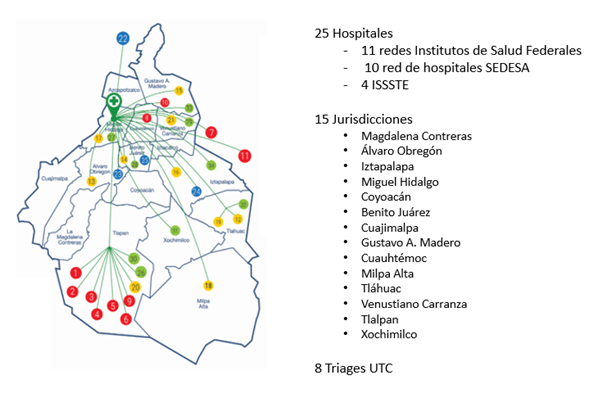
Patient-centered care
- Coordination with the hospital of origin for the continuity of medical treatment and immediate counter-referral when necessary.
- Guarantee of permanent oxygen therapy for all patients.
- Strict infection prevention protocol and adequate use of personal protective equipment.
- Integral quality clinical care.
- Personalized clinical attention to vulnerable patients due to comorbidities.
- Permanent information and communication with family members.
- Remote follow-up assisted with a digital platform at home when patients leave the hospital.
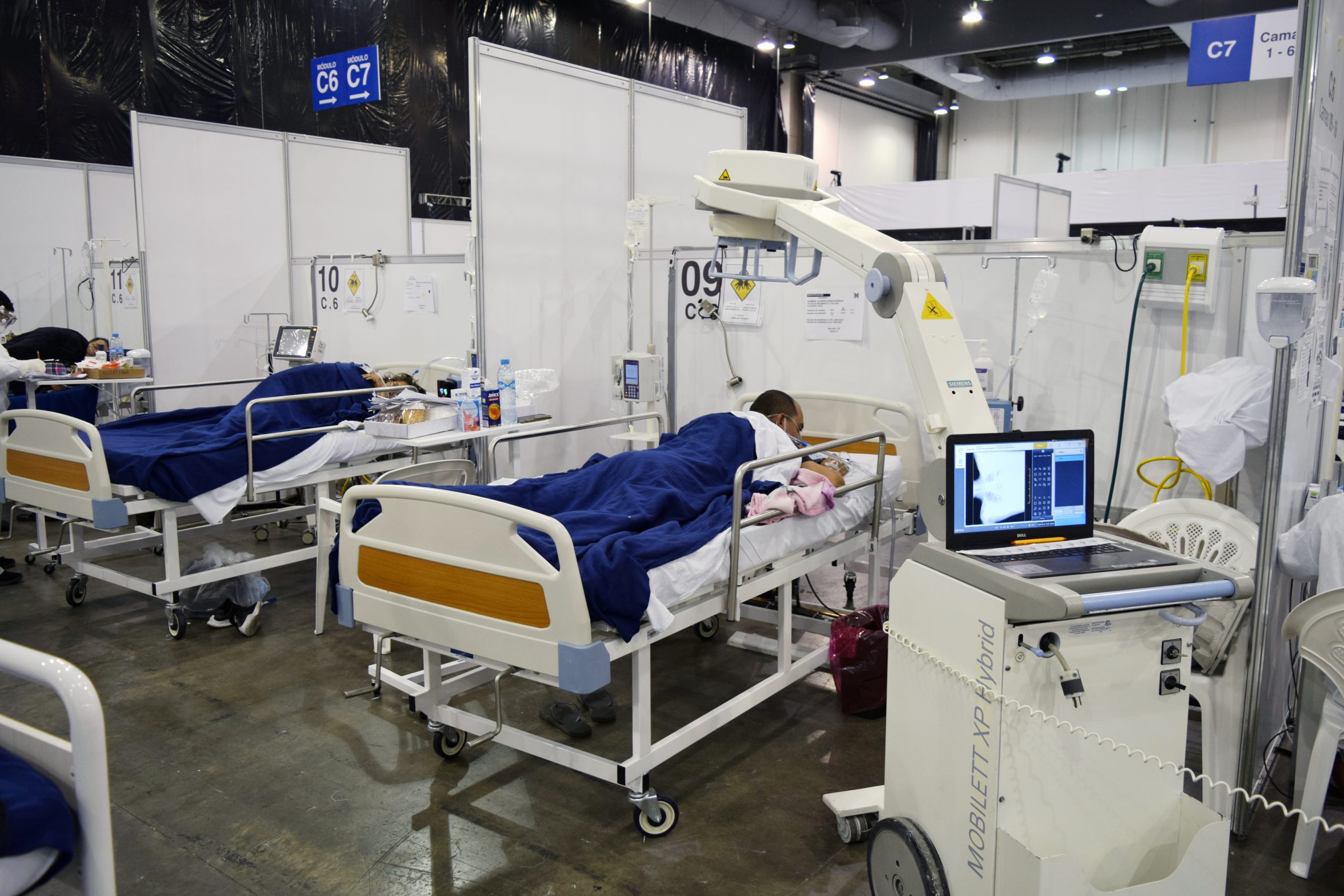
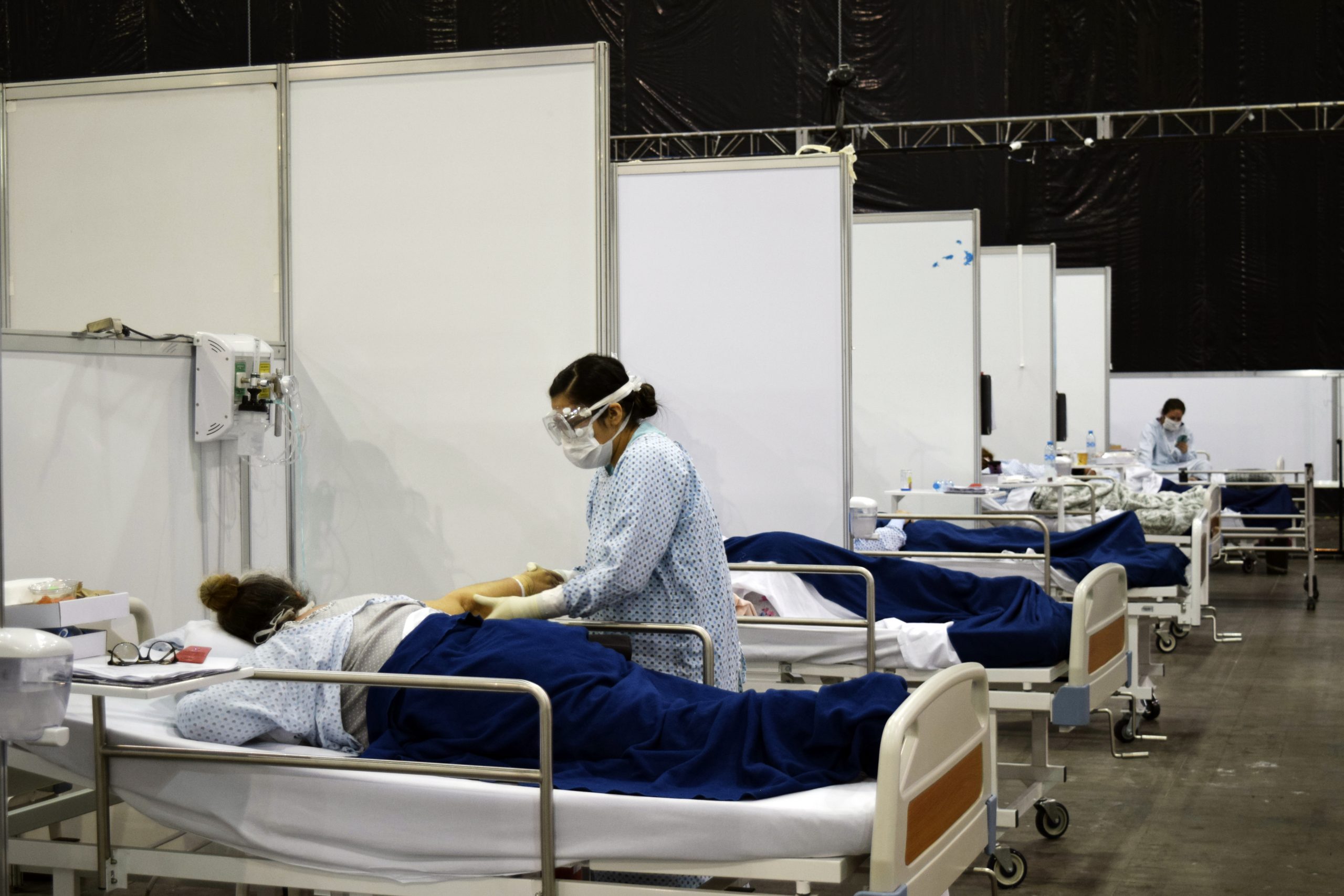
We are grateful for the support of the UNAM, through the Faculty of Medicine, as well as the National Institutes of Medical Sciences and Nutrition Salvador Zubirán and Respiratory Diseases (INER).
We gratefully acknowledge donations from:

Initiative by:
